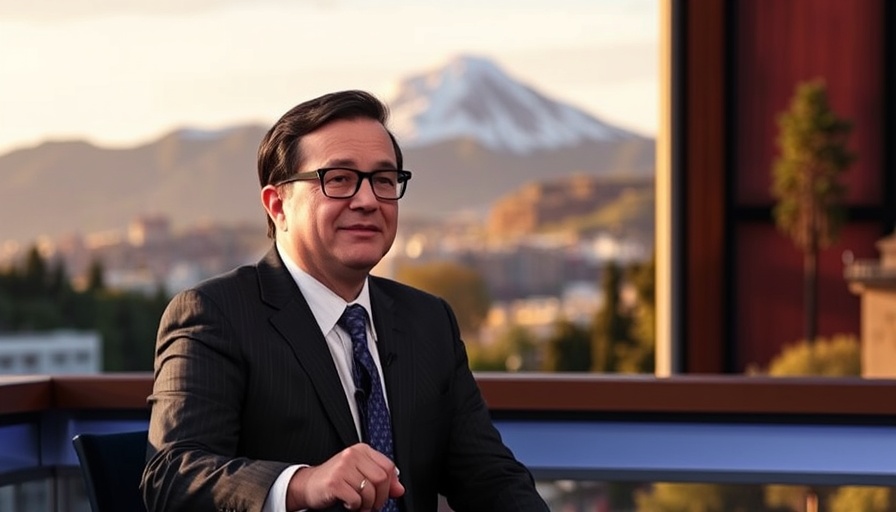
Mountainhead: A Satire of Tech Excess
In the wake of Jesse Armstrong's success with Succession, his new film Mountainhead offers a biting satire that explores the intersections of wealth, power, and moral decay among the tech elite. Set against the backdrop of an extravagant lodge in Utah, the narrative unfolds as four plutocrats indulge in a weekend filled with poker, banter, and dark humor while the world outside descends into chaos.
The Characters: Archetypes of Modern Wealth
Armstrong introduces us to a quartet of characters who are as entertaining as they are troubling. The cast includes Cory Michael Smith portraying Venis, reminiscent of Elon Musk, who has recently unleashed divisive deepfake technology. In contrast, Steve Carell's character, Randall, is an aging investor grappling with a cancer diagnosis while holding onto traditional notions of wealth and immortality. Ramy Youssef offers a glimpse of a more 'liberal' elite as Jeff, who navigates the fine line between innovation and ethical responsibility through his company’s content-filtering technology. Finally, Jason Schwartzman's character, nicknamed 'Soup Kitchen,' highlights the absurdity of striving for acceptance among the ultra-wealthy.
Exploring Themes of Power and Isolation
Mountainhead deftly explores the isolation that accompanies extreme wealth. The all-male cast starkly emphasizes the lack of diverse perspectives in their discussions about wealth and morality. This absence may parallel the corporate world's often limited viewpoints, particularly on issues like sustainability and community responsibility. As the characters banter about their fortunes, viewers are reminded of the vast disparities of wealth and the isolation that often comes with it.
Tech and Responsibility: The Balancing Act
The film also raises poignant questions about technology and responsibility. As Venis announces his latest AI innovations, the characters demonstrate a troubling enthusiasm regarding the consequences of these advancements on society. This dialogue reflects current global debates on ethical technology, particularly relevant for audiences concerned about sustainability and the ramifications of unchecked technological growth.
Cultural Reflections and Future Predictions
Mountainhead acts as a mirror reflecting the tumultuous relationship between wealth and society today. The film’s satire serves as a reminder of the urgency with which these conversations about ethics and the responsibilities of the wealthy must be had. The chaotic backdrop serves as a metaphor for broader societal issues, compelling viewers to consider what the future holds for these 'masters of the universe'. If we look 10 years ahead, will we see a shift in how tech leaders engage with issues of sustainability? Or will their focus remain on profit above all else, as hinted by the chaotic backdrop of the film?
Conclusion: A Call for Reflection Among Digital Nomads
As digital nomads navigate spaces shaped by these dynamics of wealth, power, and ethical considerations, *Mountainhead* offers a compelling narrative for reflection. Engaging with this film not only entertains but also provides a framework for thinking critically about sustainability, community, and the consequences of unchecked technology. It’s a timely exploration that challenges viewers to consider their roles in shaping a more responsible future amidst the trends of tech excess. By reflecting on these themes, we can aspire to create a balance between innovation and ethical practice in our own digital journeys.
 Add Row
Add Row  Add
Add 




Write A Comment